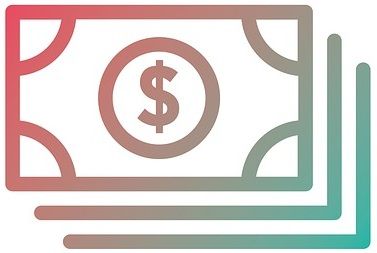 Compensation is a term closely related to the labour market. When the supply of labours is short in the market, better compensation can fulfil such shortage. It contains both direct and indirect components. Compensation refers to the remuneration that a worker gets from his/her employer in exchange for the work and contribution made to the organization.
Compensation is a term closely related to the labour market. When the supply of labours is short in the market, better compensation can fulfil such shortage. It contains both direct and indirect components. Compensation refers to the remuneration that a worker gets from his/her employer in exchange for the work and contribution made to the organization.
On the contrary, benefits imply the non-monetary reward that an employee earns as a part of the employment relationship, in addition to the basic pay. It is also known as fringe benefits, hidden payroll, wage supplements, etc. Due to relaxation in the tax policies benefits are offered by most of the firms to their employees.
When you want to know the actual CTC (cost to company) of an employee, you should know the total compensation and benefits paid. In this article, you may find the difference between these two terms.
Content: Compensation Vs Benefits
Comparison Chart
| Basis for Comparison | Compensation | Benefits |
|---|---|---|
| Meaning | Compensation connotes the total earnings received by the employees, both as financial rewards and benefits. | Benefits implies the non-financial rewards offered by the employer to the employee in exchange for the service provided by him/her. |
| Consideration | Cash or kind | In kind |
| Nature | Direct | Indirect |
| Tax | Fully taxable or partially exempt. | Exempt or partially exempt |
| Objective | To attract and retain qualified personnel. | To motivate employees, for raising their performance. |
Definition of Compensation
Compensation can be defined as the monetary and non-monetary consideration received by an employee, from his/her employer, for the work performed in the organization.
Compensation is bifurcated into two parts, i.e. direct and indirect pay, wherein direct compensation represents the financial remuneration, including basic pay, dearness allowance, incentives, bonus, overtime wages, commissions, etc. On the other hand, indirect compensation includes benefits like pension, provident fund, health insurance, perquisites, leave travel compensation, etc.
It plays a crucial role in attracting and retaining employees while conforming to the statutory requirements. Further, it is a reward system that motivates employees in raising their performance level which is based on a number of factors such as salaries offered by other firms for similar roles, performance and productivity, employee’s qualification and skills etc.
Definition of Benefits
Otherwise called as wage supplements, benefits are the indirect and non-cash compensation paid to an employee for the services provided by him/her to the organisation. These are paid in addition to the regular wages, which helps in increasing economic security of the employees. Moreover, it also results in worker’s retention.
It encompasses statutory, non-statutory, welfare-oriented and social security benefits such as rent-free accommodation, motor car for personal use, subsidised meal or food coupons, refreshments during working hours, club membership, domestic help (servants), laptops, family leave, life insurance, health insurance, educational allowances, etc.
Key Differences Between Compensation and Benefits
The differences between compensation and benefits can be drawn clearly on the following grounds:
- Compensation is used to mean the financial and non-financial reward paid to the employee for the services provided by him/her to the organization. On the contrary, benefits entails the non-monetary rewards offered to an employee as a part of their salary package for his/her contribution to the organisation.
- Compensation is a form of direct remuneration, as it is related to the performance of the employee. Conversely, benefits are a part of indirect remuneration, that is offered as a condition of employment.
- While compensation is a payment in cash or kind, benefits are the consideration in kind, provided for the services offered.
- The elements of compensation are either fully taxable or partially exempt from tax. Unlike, benefits offered by the employer to the employee are either tax-free or partially exempt from tax.
- Compensation helps in attracting and retaining talented and qualified personnel. As against, benefits induce employees in raising their performance standard, to avail better fringes.
Conclusion
In the labour industry, employment benefits constitute around 20% of the total wage. An employer offers such fringes to attract talented personnel, to induce a sense of commitment in the employees towards the firm, to ensure a better working environment and also to help in creating a good reputation in the market, etc.






APSARA says
Thank you. Helpful for my exam.